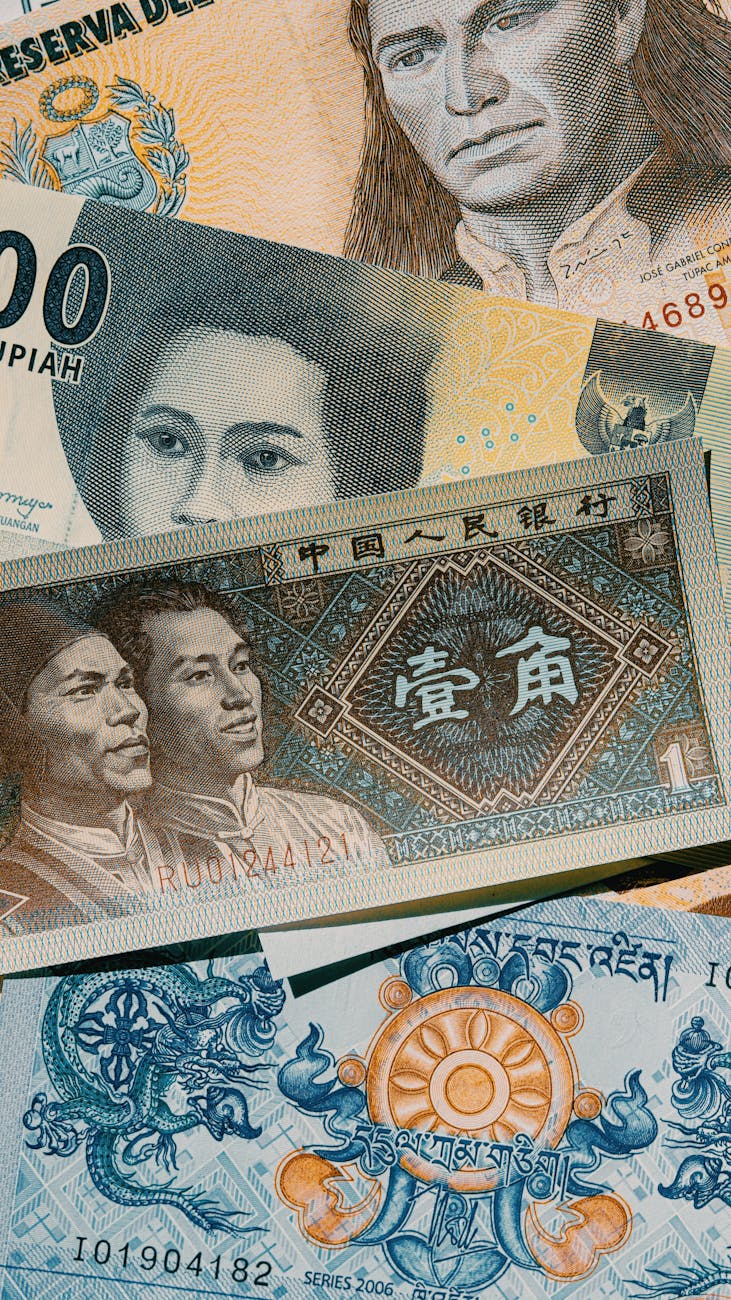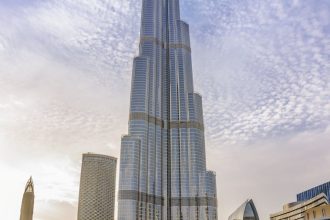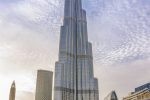Top Industries Attracting Foreign Investment 2025
The business landscape in the UAE is evolving faster than ever, and by 2025 the emirates are poised to become an even more compelling magnet for foreign capital. The driving forces behind this surge—government policy, technological innovation, and strategic geographic positioning—mean that sectors such as renewable energy, digital health, artificial intelligence, logistics, and creative economies are standing out as the most promising arenas for international investors looking to tap into GCC ambitions.
—
1. Emirates’ 2025 Vision: A Quick Primer
The UAE government’s Centennial Strategy 2071 lays a clear road map for diversification beyond hydrocarbons, and its 2025 milestones are already reshaping the investment climate. In June 2023 the Ministry of Economy announced a three‑year plan to boost non-oil GDP to 40% of total GDP by 2025, with a focus on:
– Technology & innovation – attracting patents and talent.
– Sustainable growth – expanding green energy and circular economy.
– Knowledge economy – expanding education, training, and R&D hubs.
The reforms in commercial law under the Economic Development Department (DED), tax incentives under the UAE Federal Tax Authority, and free‑zone reforms from the Dubai International Financial Centre (DIFC) and Abu Dhabi Global Market (ADGM) all dovetail to make foreign entry smoother and more profitable.
—
2. Renewable Energy – Powering a Green Future
2.1. Why Renewable Energy Stands Out
The UAE’s climate, with over 320 sunny days a year, makes solar energy a natural advantage. The Dubai Clean Energy Strategy 2050 targets 75% clean energy and 50% of Dubai’s power from renewables, while Abu Dhabi’s Future Energy Strategy (2025–2030) seeks 25 GW of clean capacity.
– Market Size: In 2023, UAE solar installations surpassed 3 GW, and the government committed to an additional 5 GW by 2026.
– Investment Incentives: Tax‑free status in free zones, 100% foreign ownership in renewable projects, and a 15% corporate tax exemption for green projects in selected free‑zones.
– Regulatory Support: The Ministry of Energy and Industry (MOEI) launched a Digital Renewable Energy Marketplace in 2024, connecting developers with investors using blockchain for transparent pricing.
2.2. Key Opportunities
| Opportunity |
|————-|
| Solar PV & CSP – High‑efficiency modules, especially in Al Ain and the eastern desert near Fujairah. |
| Wind & Hybrid Systems – West of Abu Dhabi’s coastal plains have wind speeds averaging 8–9 m/s. |
| Energy Storage – UAE’s national grid requires 10 GW of storage by 2030; opportunities for battery and pumped‑hydro projects. |
2.3. Success Stories
– Masdar City – Already generating 50 MW of solar power, with a further 91 MW planned for 2025. International partners from Germany and China have joined the finance consortium.
– Dubai’s Mohammed bin Rashid Al Maktoum Solar Park – Completed 5.6 GW in 2022; investors from South Korea and Jordan secure stakes in Phase 4.
—
3. Digital Health – Online Care in the Gulf
3.1. A Sector on the Rise
The UAE’s Ministry of Health and Prevention (MOHAP) rolled out the National Digital Health Strategy in 2022, aiming to digitise 70% of health data by 2025. The COVID‑19 pandemic accelerated the need for telehealth, remote monitoring, and AI‑based diagnostics.
– Investment Landscape: 2023 data indicate $400 M in venture capital flow into UAE‑based health tech, a 25% rise over the previous year.
– Regulatory Advancements: MOHAP’s new e-Health Licensing System (ELIS) simplifies the approval process for telemedicine, AI diagnostics, and m‑health apps.
3.2. Hot Spots for Investors
– Telehealth Platforms – Faciliating remote doctor consultations for expatriate residents.
– Biomedical Devices – IoT‑connected wearables for chronic disease monitoring.
– Pharma‑Tech – AI‑assisted drug discovery and personalised medicine.
3.3. Notable Partnerships
– AlliedHealth Digital & Abu Dhabi Biotechnology Centre – Securement of $60 M for AI‑based diagnostic tools.
– Doaa Lab – A UAE‑Saudi joint venture developing AI-powered imaging diagnostics with a $45 M angel round.
—
4. Artificial Intelligence & Data Analytics – The Knowledge Engine
4.1. Government‑led Initiatives
The UAE Vision 2021 declared AI a core technology, and the Dubai AI Strategy 2025 sets a target of 2% of national GDP derived from AI firms. The government has formed the Dubai Blockchain Strategy, integrated across AI, to enhance transparency and efficiency.
4.2. Investment Flow
According to Dubai Economic Council (2023), the AI startup ecosystem had raised $1.2 B, the highest in the GCC. Global firms are establishing R&D hubs:
– Google Cloud – opened regional AI research lab in Abu Dhabi.
– IBM Watson – expanded its UAE operations to include advanced robotics.
4.3. Key Sectors within AI
| AI Sub‑Industry | Description | Regional Relevance |
|—————–|————-|——————–|
| Autonomous Vehicles | Dubai’s self‑driving taxi trials – CLEAR & Connected Car projects. | Pilot testing in Sheikh Zayed Road. |
| FinTech AI | AI‑driven credit scoring for the SME community. | Collaboration with DIFC’s fintech incubator. |
| Smart City AI | Analytics for traffic, safety, and utilities. | Implementation across Dubai Smart Avenue. |
—
5. Logistics & Supply Chain – Gateway to the World
5.1. Strategic Edge
Dubai International Airport (DXB) and Abu Dhabi International Airport (AUH) rank among the top cargo hubs globally. The Netherlands–UAE logistics corridor and near‑shoring trends saw a 30% uptick in freight volume between 2022 and 2023.
5.2. Free‑Zone Advantages
– Jebel Ali Free Zone (JAFZA) – Offers over 200,000 sq m of warehousing, reduced customs duty (0% on re‑exported goods).
– Dubai Multi Commodities Centre (DMCC) – Growing focus on financial products exported via digital platforms.
5.3. Investment Opportunities
– Cold‑Chain Logistics – Needed for per‑ishable exports.
– Last‑Mile Delivery – AI‑powered route optimisation for e‑commerce.
– Automation & Robotics – Automated sorting and drone delivery pilots (e.g., Emirates SkyCargo’s UAS trial).
—
6. Creative Industries – From Design to Entertainment
6.1. Rising Star
The Creative Economy Benchmark (2023) lists UAE’s creative output as the 15th highest globally. With increased funding from Abu Dhabi Cultural Foundation and Dubai Media Office, the sector covers film, music, fashion, and gaming.
6.2. Incentive Framework
– 100% foreign ownership in Dubai Media City and Abu Dhabi Media Free Zone.
– Tax exemptions for content-producing companies until 2030 under the Creative Industries Tax Incentive Package.
6.3. Investment Hot Points
– Film Production – UAE’s 10K Days Film Festival attracts Hollywood talents.
– Gaming Studios – Dubai’s UAE STEEP funding (Strategic Tech Expansion & Enhancement Programme).
– Fashion & Luxury – Collaboration with local Emirati designers, amplified by the launch of the Dubai Fashion Week.
—
7. FinTech & Digital Banking – The Financial Frontier
7.1. Regulators Leading the Charge
Dubai’s Dubai Central Bank and Abu Dhabi’s Central Bank of the UAE have issued directives on Open Banking and Digital Asset Licensing. The Dubai International Financial Centre (DIFC) Regulatory Framework now allows AI‑based credit scoring and crypto‑asset advisory services.
– Key Legislation: Solvency II alignment for insurance, Anti‑Money Laundering (AML) framework optimized for blockchain.
7.2. Market Outlook
– According to the Yale Center for Financial Innovation, FinTech GDP in the UAE is projected to hit $70 B by 2028.
– The Dubai International Financial Centre attracted $1.5 B in fintech investment during Q1 2024.
7.3. Investment Focal Points
– Digital Banking Platforms – Seamless KYC and onboarding.
– InsurTech – Usage‑based insurance using IoT sensors.
– DeFi & Crypto Infrastructure – Building secure, compliant exchange platforms.
—
8. The Role of Free Zones In Escalating Foreign Capital
Free zones are the cornerstone of the UAE’s foreign investment strategy:
| Free Zone | Key Offerings | Ideal Investment Sector |
|———–|—————|————————|
| Dubai Silicon Oasis | IT infrastructure & R&D labs; 100% foreign ownership | AI, EdTech |
| Abu Dhabi Global Market (ADGM) | Financial services, fintech, data centres | FinTech, Data Sovereignty |
| Dubai Media City | Media production, marketing | Creative Industries |
Governments continuously refine policies: a 2024 amendment removed 3‑year operational caps, facilitating longer‑term ventures.
—
9. Navigating the Landscape – Practical Tips for Investors
– Perform Local Due Diligence: Partner with local legal counsel to understand licensing and tax obligations.
– Leverage Emirate‑wide Incentives: Use both federal and emirate‑level programmes (e.g., Abu Dhabi’s Investment Attraction Programme).
– Engage with Incubators: Dubai’s Innosuisse, Abu Dhabi’s Innovation Hub, and other accelerators reduce entry risk.
– Align with ESG Goals: The UAE’s 2030 Climate Action Plan prioritises sustainability, offering additional incentives for ESG‑conscious projects.
– Stay Updated on Regulatory Disruption: The UAE’s RegTech Lab offers real‑time monitoring of legal developments, particularly in FinTech and AI.
—
10. Conclusion – Why 2025 Is the Golden Year
Foreign investors eyeing the UAE must look beyond traditional energy exports. The country’s strategic initiatives—from smart city AI to green energy and digital health—present a diversified, resilient portfolio. Regulatory simplification, generous tax incentives, and a well‑educated labour force provide a solid foundation. By 2025, sectors highlighted above will likely continue to lead the UAE’s transformation into a leading knowledge economy, offering high returns for those who invest strategically and responsibly.









